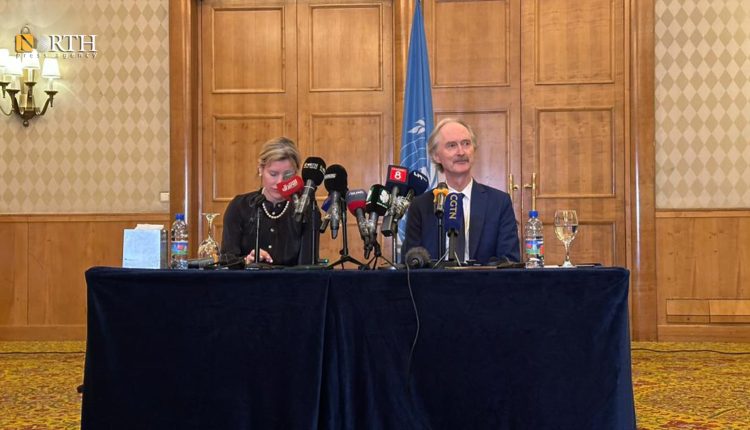UN envoy backs diplomacy after Öcalan’s disarmament call
QAMISHLI, Syria (North Press) – The United Nations Special Envoy for Syria reiterated on Friday support for a peaceful resolution to longstanding regional conflicts following Abdullah Öcalan’s call for the Kurdistan Workers’ Party (PKK) to lay down arms and dissolve itself.
Spokeswoman for the U.N. Special Envoy for Syria, Jenifer Fenton, told North Press that the Envoy reaffirmed Secretary-General António Guterres’ welcoming of this significant development and acknowledged the reactions from the Syrian Democratic Forces (SDF) and other key actors.
“We continue to stress the need for a diplomatic solution to the issues in the Northeast and the importance of compromise from all concerned,” Fenton stated.
The statement highlights the U.N.’s ongoing efforts to encourage dialogue and peaceful negotiations in the region, emphasizing the necessity of cooperation among all stakeholders to achieve long-term stability.
After four decades of armed insurgency against the Turkish state, Abdullah Öcalan, the imprisoned leader of the Kurdistan Workers’ Party (PKK), has called for the group to disband.
In a long-anticipated statement read by deputies from the pro-Kurdish Peoples’ Equality and Democracy Party (DEM) in Istanbul on Thursday, Öcalan declared that the PKK “has reached the end of its existence, like its counterparts, and must dissolve itself.”
Öcalan, 75, has been imprisoned on İmralı Island, off the coast of Istanbul, since 1999 following his conviction for treason.
The PKK, which Öcalan founded in 1978, launched its armed campaign in 1984, primarily in Turkey’s southeast. The group is designated as a terrorist organization by Turkey, the United States, and the European Union.
Previous attempts to negotiate peace with the PKK, including major initiatives in the early 2000s and a ceasefire agreement in 2013, have ultimately collapsed, with the most recent peace process breaking down in 2015. Öcalan’s latest call raises questions about whether a renewed effort toward reconciliation could finally take shape.

